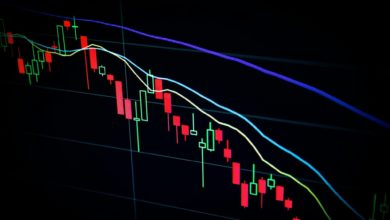End of Year Message From the Chairman of the Board of BioElectronics
[ad_1]
FREDERICK, MD –  (NewMediaWire) – December 22, 2023 – BioElectronics Corp. (OTC: BIEL) is pleased to provide this end of year message to investors, customers, suppliers and other partners. As described below, the last six months have produced mixed results.
(NewMediaWire) – December 22, 2023 – BioElectronics Corp. (OTC: BIEL) is pleased to provide this end of year message to investors, customers, suppliers and other partners. As described below, the last six months have produced mixed results.
Research Update
We have seen good progress on the research side. An investigator-sponsored study at University of California San Diego (UCSD) for phantom limb was completed this last fall and the paper is now under peer review for publication. All indications are that the results are very positive, but they are embargoed until they appear in press. The quality of life study for dogs diagnosed with osteoarthritis has been tentatively accepted and is now being prepared for final publication in Veterinary Medicine and Science. The results of this double-blind, placebo-controlled study show that the treated dogs showed significant improvement in functionality and mobility after 14 days of treatment above and beyond the current prescription medicines being taken. If this paper is published, we plan to start actively marketing our RecoveryRx line into the veterinary market.
Two other clinical studies are now in the field. Stanford University is conducting a study on thumb arthritics and a second study at UCSD for post-surgical analgesia is expected to finish in June 2024.
Finally, we completed a new design for our RecoveryRx product that is better suited for surgery incisions and is 50% more powerful than the current version. We have already manufactured a limited supply of these units and are planning to apply for an expedited 510(k) from the FDA in the near future.
Distribution Update
News on the sales front is more mixed. We brought in two new distributors for Bulgaria and the Netherlands and will relaunch in Australia in early 2024. However, talks with a major distributor in Asia and the CIS countries fell through after about six months of conversation. KT Tape had a change in management and decided not to actively market our medical device. As a result, we revoked its exclusive distributor contract and are now looking for a new distributor.
Social Media Campaign
We launched a limited social media campaign to generate some sales and interest in our OTC product within the very lucrative US market. These direct to consumer (DTR) sales continue to result in strong consumer reviews. Aggregating the numerous product reviews (well over 1000) over the platforms selling our product shows that the vast majority (70% or more) of users give our product a 4 or 5 star rating. This figure is very similar to our published research findings that show about 66% of chronic pain sufferers find clinically significant relief within the first 7 days of use of our OTC product. Such findings have led to significant conversations with three major distributors who are in the pain space. However, to date, none of these conversations have resulted in a licensing or distribution agreement.
Need for Short-Term Financing
The lack of significant sales volume has severely limited the Company’s ability to actively market its product line. Most of the funding has come from inside investors (mainly myself). As has been the case for a number of years, the lack of positive cash flow has forced the Company to make many short-term decisions that have acted as a barrier for potential growth. It has also led to the Company looking for additional financing. The Company cannot provide assurances that it will be able to obtain the needed financing, on acceptable terms or otherwise. If the Company is unable to obtain short term financing, it is likely that the Company will need to explore strategic alternatives, including possible dissolution. In the event the Company does obtain financing, there can be no assurances the Company will be able to achieve any of the objectives or milestones described above.
On a more positive note, BioElectronics would like to extend Season Greetings to all its customers and loyal shareholders. Here’s to everyone’s health and prosperity.
Richard Staelin
Chairman of the Board
Contact: Paul Knopick
E&E Communications
940.262.3584
View the original release on www.newmediawire.com
[ad_2]




